#Pyarelal Ramprasad Sharma
Explore tagged Tumblr posts
Text
268: Laxmikant-Pyarelal // Dosti
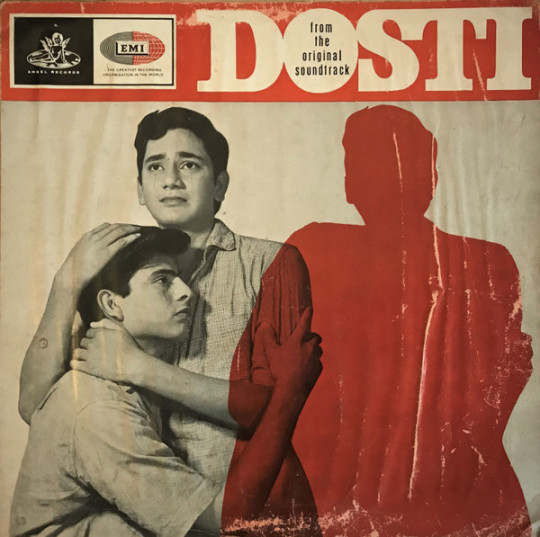
Dosti Laxmikant-Pyarelal 1964, Angel
Composing partners Laxmikant Shantaram Kudalkar and Pyarelal Ramprasad Sharma worked together for 35 years and, per Hindustan Times,composed about 2,900 songs for 750 different films during that span—a level of productivity basically unfathomable outside of the specific context of the insanely prolific Bollywood studio system. 1966’s Dosti soundtrack was their artistic and commercial breakthrough, and as such it occupies a significant place in Indian music history. I’ve never seen the film, though its cover features two crying boys hugging so it may be up my alley. The Wikipedia synopsis makes it sound like a melodrama without parallel (aside from several hundred others made by Bollywood that same year). The movie opens with a boy’s father dying in an industrial catastrophe, his mother fainting and falling down the stairs (to her death), and then the boy getting disabled in an accident of his own. He then makes friends with a homeless blind boy, and the two chums are then rigorously wedgied by life itself for the next three hours until a happy ending imposes itself.
youtube
Working with lyricist Majrooh Sultanpuri (a notable leftist poet), Laxmikant-Pyarelal’s songs are strongly credited with Dosti’s enduring success, and while I’m neither an expert in their oeuvre nor Bollywood music as a whole, I can tell you this is beautiful music any fan of adventurous vintage pop should adore. The songs all strike my ear as happy, but with a tear welling in their eyes. It’s more subtle stuff than I associate with contemporary Bollywood: “Gudiya Kab Tak Na Hasogy” twinkles and minces to a gentle dance rhythm, leaving room for soulful flute and harmonium (or accordion?) solos and the melancholy lilt of a mandolin. Both members of the duo had a strong education in Western and Indian classical music, and these sentimental songs find the sweet spot between the traditions, with vigorous tabla rhythms and droning strings meeting melodies that evoke spaghetti western scores (“Janewalo Zara”) or practically quote “Ode to Joy” (“Rahi Manwa”).
It was the convention at the time for a reliable cadre of vocalists to dub over the singing voices of the lead actors, and Laxmikant-Pyarelal established long-standing relationships with their favourites. Dosti features two of their standbys, with Mohammed Rafi handling five of the six songs on the 10” soundtrack I own, and Lata Mangeshkar taking the other. Both absolute legends on the subcontinent, while Rafi and Mangeshkar were each well into adulthood by the time they recorded these songs they give such naively haloed performances that if you can squint (your ears?) just a little it’s easy to imagine they might have originated from the lips of children.
The scope of my expertise in this area is extremely limited, but if it’s not clear, Dosti gets my highest recommendation. If you should come across a ‘60s record with the Laxmikant-Pyarelal imprimatur at your local used shop, give it a shot.
268/365
#laxmikant-pyarelal#mohammed rafi#lata mangeshkar#majrooh sultanpuri#Laxmikant Shantaram Kudalkar#Pyarelal Ramprasad Sharma#dosti#bollywood music#'60s music#indian music#hindu music#'60s bollywood#classic bollywood#music review#vinyl record
4 notes
·
View notes
Text
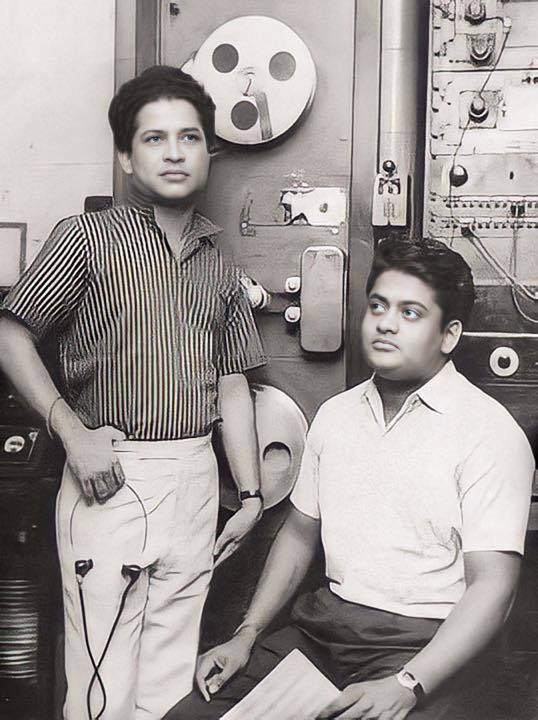
Birthday greetings to the living music legend of the Hindi film industry, Sri #Pyarelal Ramprasad Sharma (03/09).
The iconic music director duo #LaxmikantPyarelal is synonymous with Hindi film music, particularly its popular hits. Born on September 3, 1940, Pyarelal Ramprasad Sharma is the son of the renowned trumpeter, Pandit Ramprasad Sharma, also known as Babaji. Under his father's guidance, Pyarelal started learning the violin at just 8 years old, dedicating 8 to 12 hours daily to practice. He further refined his violin skills under Goan musician Anthony Gonsalves. The song "My Name Is Anthony Gonsalves" from the film Amar Akbar Anthony is a tribute to Gonsalves, featuring music by the Laxmikant–Pyarelal duo.
At 12, Pyarelal began playing the violin in various studios, including Ranjit Studios, to support his family financially. His brother, Gorakh Sharma, also contributed by playing guitar for songs composed by Laxmikant-Pyarelal.
The duo first gained widespread recognition with their music for the 1964 film Dosti, produced by Rajshri Productions. Despite relatively unknown lead actors, the film's memorable songs like "Chahoonga Main Tujhe Shaam Savere" and "Rahi Manwa" made it a hit. Many initially thought Laxmikant–Pyarelal was a single person. They won their first Filmfare Award for Best Music Director for Dosti, beating industry giants like Shankar–Jaikishan and Madan Mohan. Their subsequent work in films like Lootera, which featured famous Lata Mangeshkar songs, also gained fame.
By 1966, Laxmikant–Pyarelal had firmly established themselves in Bollywood. They continued to earn acclaim for their music in films like Aaye Din Bahar Ke and Pyar Kiye Jaa. In 1967, they had a series of hits, including the Golden Jubilee musical hit Farz, and other big-star films like Anita and Shagird. They won their second Filmfare Award for the film Milan.
Laxmikant–Pyarelal, along with contemporaries like Rahul Dev Burman and Kalyanji-Anandji, represented a new era in Bollywood music, overshadowing earlier composers. They were frequently chosen by major film producers and consistently delivered exceptional music.
Their significant collaboration with lyricist Anand Bakshi led to some of Bollywood’s most iconic songs, appearing in over 250 films. Anand Bakshi wrote the lyrics for all the films that earned Laxmikant–Pyarelal Filmfare Awards, except for their first. #RajeshKhanna also had a long-standing professional relationship with the duo, choosing them as the music directors for 26 of his films.
Another fruitful partnership was with singer Asha Bhonsle, who voiced numerous hits composed by Laxmikant–Pyarelal, including chart-toppers like "Dhal Gaya Din" and "Hungama Ho Gaya." The latter song was re-recorded for the 2014 film Queen and became a massive hit again. Between 1980 and 1986, Asha Bhonsle was often the lead vocalist for their compositions. Laxmikant–Pyarelal also scored music for the Telugu film Majnu in 1987, which was well-received for its musical numbers.
2 notes
·
View notes
Text
Laxmikant–Pyarelal’s Unique Style: A Blend of Tradition and Modernity
Bollywood has been home to some of the most iconic musical talents in the world, and among these, the duo Laxmikant–Pyarelal stands out as revolutionary composers who redefined film music. Over a career spanning more than three decades, Laxmikant Shantaram Kudalkar and Pyarelal Ramprasad Sharma transformed Bollywood’s musical landscape with their melodious compositions and orchestral brilliance. Their story is not just about creating unforgettable music but about establishing themselves as pioneers in an industry teeming with talent.
This article takes a closer look at their inspiring journey, their groundbreaking work, and the legacy they left behind.
Early Life and Formation of the Duo
Laxmikant–Pyarelal’s story began with humble beginnings. Laxmikant was born on November 3, 1937, in Mumbai. His early years were marked by hardship after the untimely demise of his father, which pushed him to support his family through his passion for music. Learning the mandolin under the tutelage of Hussain Ali and later Bal Mukund Indorker, Laxmikant developed a strong foundation in music.
Pyarelal, on the other hand, was born on September 3, 1940, in Gorakhpur. Introduced to music at an early age by his father, the celebrated trumpeter Pandit Ramprasad Sharma, Pyarelal quickly developed a mastery of the violin. He was mentored by Anthony Gonsalves, a Goan musician after whom the popular song “My Name Is Anthony Gonsalves” is named.
The two met in their youth while working as session musicians in Bollywood, and a shared passion for music quickly turned into a partnership. Initially, they worked as assistants to music directors like Kalyanji-Anandji, but their dreams were set much higher.
Their Breakthrough in Bollywood
In 1963, Laxmikant–Pyarelal got their first big break as independent music directors with the film Parasmani. The film’s songs, such as “Hansta Hua Noorani Chehra” and “Woh Jab Yaad Aaye,” became instant hits. This success established them as formidable composers in the industry.
Over the next decade, they rapidly rose to prominence, collaborating with leading filmmakers and delivering chart-topping music for films like Dosti (1964), which earned them their first Filmfare Award. Their ability to create melodies that appealed to both the masses and critics ensured their consistent demand in Bollywood.
Groundbreaking Music in the 1970s and 1980s
The 1970s and 1980s were the golden era of Bollywood music, and Laxmikant–Pyarelal were at the helm of this transformation. They showcased an incredible ability to adapt their music to the changing tastes of the audience. Whether it was soulful ballads, energetic dance numbers, or classical renditions, their compositions struck a chord with listeners.
One of their most notable works during this period was for the film Amar Akbar Anthony (1977). The song “My Name Is Anthony Gonsalves” became a cultural phenomenon, and the film’s entire soundtrack reflected their versatility. Another masterpiece was Karz (1980), where their innovative use of symphony and rhythm introduced a new era of Bollywood music.
Their collaborations with lyricists like Anand Bakshi and singers such as Lata Mangeshkar, Kishore Kumar, and Mohammed Rafi resulted in timeless hits like “Satyam Shivam Sundaram,” “Bindiya Chamkegi,” and “Dafli Wale.”
Unique Musical Style
Laxmikant–Pyarelal’s music was a seamless blend of Indian classical traditions and Western influences. They were masters of orchestration, often using grand arrangements to elevate the emotional depth of their compositions. From the sitar and tabla to violins and trumpets, their understanding of musical instruments allowed them to create rich, layered soundscapes.
A key aspect of their music was its emotional resonance. Whether capturing the pain of separation in “Chahoonga Main Tujhe” (Dosti, 1964) or the infectious joy in “Om Shanti Om” (Karz, 1980), their melodies connected deeply with audiences.
Their Impact on Bollywood Music
Over a career that spanned more than 35 years, Laxmikant–Pyarelal composed music for over 635 films. They worked with almost every major filmmaker and actor of their time, earning a reputation for their professionalism and creativity. Their ability to craft songs that suited the narrative of a film while also resonating independently as chart-toppers set them apart from their contemporaries.
They received numerous accolades, including seven Filmfare Awards for Best Music Director. Their influence extended beyond their time, inspiring future composers like A.R. Rahman and Vishal-Shekhar.
Legacy of Laxmikant–Pyarelal
Even decades after their heyday, Laxmikant–Pyarelal’s music continues to thrive. Their songs are still played on radio stations, and remixes of their classics regularly feature in contemporary Bollywood films. The timeless quality of their music ensures that it remains a cherished part of India’s cultural heritage.
Their legacy lies not only in the volume of work they produced but in the enduring emotional impact of their songs. Generations of Bollywood fans have grown up listening to their music, and their influence is evident in the works of modern-day composers.
Conclusion
Laxmikant–Pyarelal journey from humble beginnings to becoming legendary pioneers of Bollywood music is a testament to their talent, hard work, and innovative spirit. They not only transformed the musical landscape of their era but also left a legacy that continues to inspire and entertain millions.
Their compositions remind us of the golden days of Bollywood, when music was not just a part of cinema but an integral element that defined its success. As we revisit their timeless melodies, we celebrate the duo’s unparalleled contribution to Indian cinema.
0 notes
Text
Tunes of Time: The Laxmikant-Pyarelal Story | Rajesh Thakur's Podcast Show
Welcome to “Tunes of Time: The Laxmikant-Pyarelal Story,” a captivating journey through the illustrious careers of one of Bollywood’s most iconic music composer duos, hosted by Rajesh Thakur, on Tune India Radio.. Laxmikant Shantaram Kudalkar and Pyarelal Ramprasad Sharma, collectively known as Laxmikant-Pyarelal, revolutionized the Indian music industry with their enchanting melodies and…
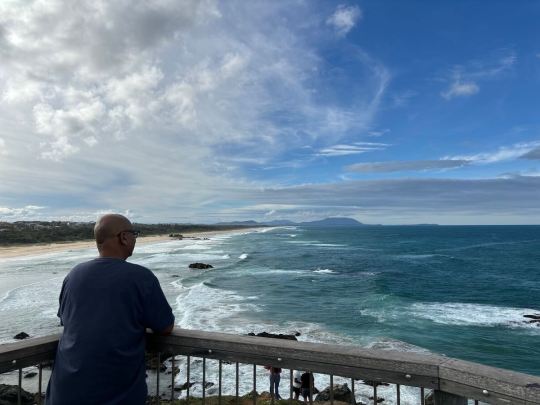
View On WordPress
0 notes
Text
The composer who immortalised his violin teacher Anthony Gonsalves
(adsbygoogle = window.adsbygoogle || []).push(); New Delhi, Jan 26 : Music composer Pyarelal Ramprasad Sharma, of Laxmikant-Pyarelal fame, has been honoured with the prestigious Padma Bhushan, not only as a celebration of his musical prowess, but also in acknowledgment of his role in defining the golden era of Hindi film music. The octogenarian learnt the basics of music from his father, the…
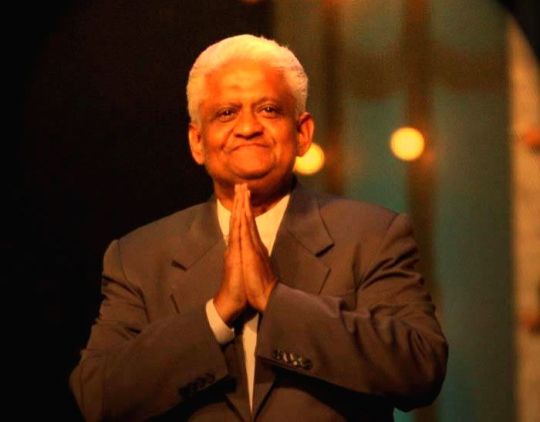
View On WordPress
0 notes
Text
Kate Nahi Katte Din Ye Raat Song Lyrics In Hindi & English
Kate Nahi Katte Din Ye Raat Song Lyrics In Hindi & English
Kate Nahin Kat Te Lyrics in Hindi. काटे नहीं कट ते song from Mr India 1987. It stars Anil Kapoor, Sridevi, Amrish Puri. Singer of Kate Nahin Kat Te is Alisha Chinai, Kishore Kumar. Lyrics are written by Javed Akhtar Music is given by Laxmikant Shantaram Kudalkar (Laxmikant Pyarelal), Pyarelal Ramprasad Sharma (Laxmikant Pyarelal) Kate Nahi Katte Din Ye Raat Song Credits – Mr.India Movie…
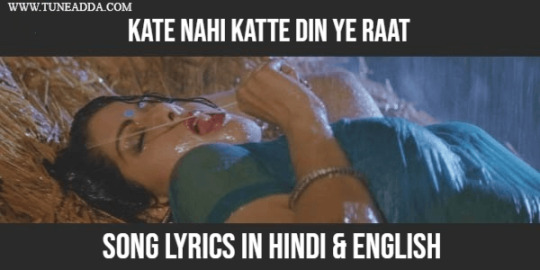
View On WordPress
0 notes
Text
Pyarelal of legendary 'Laxmi-Pyare' music duo to make a comeback with US concert
Pyarelal of legendary ‘Laxmi-Pyare’ music duo to make a comeback with US concert
Image Source : FILE PHOTO Pyarelal of legendary ‘Laxmi-Pyare’ music duo Iconic music director duo of Laxmikant-Pyarelal has enthralled music lovers for decades, be it films or their live performances. While Laxmikant passed away way back in 1998, Pyarelal Ramprasad Sharma still continues to create magic with his music. The legendary composer is now making a comeback with a musical concert in the…
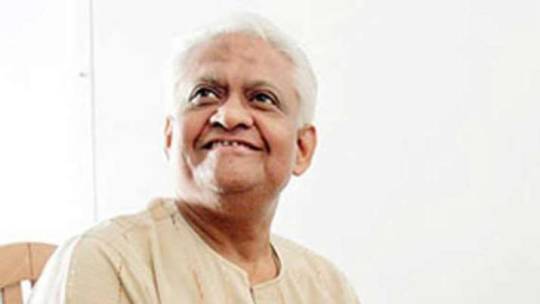
View On WordPress
0 notes
Text
Music Arranger Shamrao ji
by
Prasad Sanwatsarkar
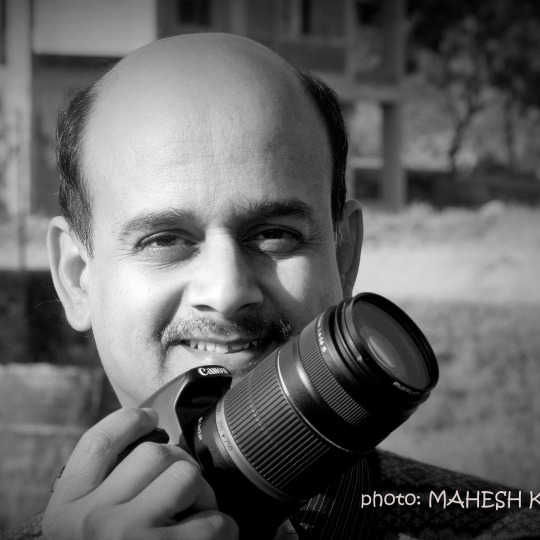
“rahe na rahe hum, maheka karenge...”an ace Harmonium, Organ, Vibraphone player, Music-Arranger, ComposerThe late “ SHAMRAOji KAMBLE “
His unforgettable harmonium in “baai mee wikat ghetala sham...”, “thakale re nandalala...” (Marathi), “jaane kahaan gayee, dil mera le gayi...”, organ in “yashomati maiyya se bole nandalala...” , vibraphone in “mujhe jaan kaho meri jaan...” and so many... music-director (with Prabhakar ji Jog) of English film 'Birbal My Brother' in which Pt Bhimsen Joshi, Shobha Gurtu sung thier compositions... Shamrao ji, Music Arranger of many films under music-direction of Jaidev, Sudhir Phadke, Roshan , Vasant Prabhu, Prabhakar Jog, Sapan-Jagmohan, Rajesh Roshan , Ravindra Jain, Shridhar Phadke, Laxmikant-Pyarelal’s melody conductor and so on......... and equally, rather more important....... extremely humble, Lovable HUMAN BEING... (pic betterment- mr Sateesh Paknikar. scanned, cropped, low res image)6Jayant B. Joshi and 5 others
From other sources Tributes to Shamrao Kamble, the unsung music maestro of Hindi cine music industry, on his birth anniversary today.Shamrao Kamble was an eminent and excellent music arranger who had worked with almost all the music directors in 60s and 70s. Basically a Harmonium player, he was also a master in organ and vibraphone playing. He was a favourite arranger of music directors Laxmikant -Pyarelal, Roshan, Rajesh Roshan, Jaidev and Sudhir Phadke. He was the melody section conductor in Laxmikant-Pyarelal's music and worked with them throughout their career. His music arrangements in films like 'Mujhe Jeene Do', 'Prem Parbat', 'Gharonda', 'Reshma aur Shera' (with Jaidev), 'Anokhi Raat' (Roshan), '’Kunwara Baap’, ‘Julie' (Rajesh Roshan) and the hit Marathi album 'Ritu Hirwa' was amazing.He had also composed music with the veteran violinist Prabhakar Jog for the English film 'Birbal My Brother' under the name 'Shyam-Prabhakar'. We have listened to his unbeatable harmonium in the songs like 'baai mi wikat ghetala sham", 'thakale re nandalala"(‘jagachya pathivar’), "jaane kahan gayi" (‘dil apna aur preet paraai’) and organ in "yashomati maiya se bole nandalala" (‘satyam shivam sundaram’. .Very few know that Shamrao himself was a brilliant composer as well. He used to compose Bhajans and once on listening to the Bhajans he composed, music director Pyarelal asked him “Shamraoji if you can compose the tunes so nicely, why don’t you think to be a full-fledged music director for films ?” He just said “I am more interested in the Music Arrangements..” Pyarelal asked him jokingly, “so shall I use your compositions ?” smiling, within a second he said, “Pyareji, my all work is for you… you may use whenever you wish..!” I am very much sure that if Shamraoji had taken music-direction is a career, he would have definitely achieved the position in the list of most talented and successful composers in Indian music field," said Pyarelal Ramprasad Sharma, the ace music director."His knowledge and devotion towards music was so deep, that he even used to guide or suggest the top artists like Rais Khan (sitar), Hariprasad Chaurasia (flute), Shivkumar Sharma (santoor) about the playing during the recordings. He also used to express that a particular music piece would be more effective if improvised in a different manner etc. And the greatness of those artists also, who used sportingly accept Shamraoji's suggestions and appreciate the same.. This was only because they were fully aware of Shamraoji’s knowledge and capacity. And also this was the reason that we had given total freedom to him in our work also," said Pyarelal.In his early career, Shamrao had worked as a notation-writer. He was the one who wrote down the notation for Dinanath Mangeshkar's natya sangeet (Chandrika hi janu, Vilopale madhu meelanat ya, Yuwati mana etc).He was well-versed in western idiom too. He brought sophistication to the music pieces of Sudhir Phadke, Roshan and Jaidev. His speciality was reading the lyrics and composing music interludes to set the mood for the next stanza. His interludes for 3 stanzas used to be all different (e,g. Jo waada kiya nibhana padega). He completed Roshan's 'Anokhi Raat' in his absence when Roshan died halfway through the movie.He assisted Rajesh Roshan in his first two movies 'Kunwara Baap' and 'Julie', and young 'Shridhar Phadke' for his 'Rutu Hirwaa' album and continued even later.A producer once came to Jaidev asking him to score for Gharonda, but asked him to give music like R.D.Burman. Jaidev refused, but Shamrao said "You just say yes, we will see what to do". He is the one who transformed Jaidev's difficult tunes into modern rhythm and orchestration, using strings, transichord and whistle effectively. After the movie was released, Jaidev rang him up "Arre ye tune kya kar diya? My music is so successful, now everyone wants music like that. I have to attach your name to mine, too".Shamrao was the senior partner in Shyam Kamble & Party (along with Laxmikant and Pyarelal who were kids) performing at the Ganeshotsav programmes. Shamrao Kamble was one such soul who has contributed endlessly to the music industry. For many he was a guide and father figure in the music industry. And more than all this he was a great great human being. So modest and down to earth for all his amazing achievements..Shamrao Kamble passed away on away on 17th October 2008 at Dombivli due to a Brain Stroke. He was 83.Although the void created by him can never be filled, his art and work will remain in everyone’s memory eternally.May the noble soul of Shamrao Kamble rest in eternal peace.(The Admin at Imprints and Images of Indian Film Music conveys his heartfelt thanks to Shri.Prasad Sanwatsarkar for the photograph and Sri.Chandu Kale for the information on Shamrao Kamble )
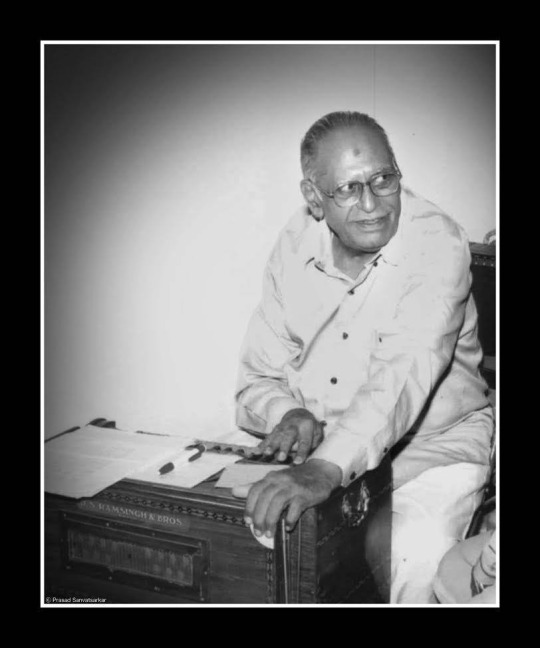
0 notes
Photo

Veteran music composer Pyarelal Ramprasad Sharma plays piano on Maniesh Paul’s request on Sa Re Ga Ma Pa : Bollywood News - Bollywood HungamaVeteran music composer Pyarelal Ramprasad Sharma plays piano on Maniesh Paul's request on Sa Re Ga Ma Pa #bollywood #news #mumbai #dailyupdates #dailynews #presssangharsh #mumbaikar #viralnews #viral #press #hollywood #headline #starbuzz #story #livenews #entertainment #webseries #youtube Visit www.presssangharsh.com or www.starbuzz.in https://ift.tt/38N2Csm
0 notes
Text
Sukhwinder Singh: The Singing Legend
Born and taken up in Amritsar, Punjab, the famend Bollywood playback singer, Sukhwinder Singh, rose to worldwide reputation with this tune "Jai Ho" from the movie 'Slumdog Millionaire' in the yr 2008. Also popularly called Sukhi amongst his admirers, the singing sensation has no longer only constrained his expertise to singing, however has additionally executed achievement as a tune composer, director & lyricist, and recently as an actor. Top 10 Movies of Madhuri Dixit Nene Although he changed into aspired to turn out to be a sportsperson from his early adolescence, singing came about to him by means of hazard. Since he got a spoil within the Hindi film industry in the year 1986, there has been no searching back for him. Till date, he has lended his captivating voice in extra than hundred Bollywood films in conjunction with other local films and albums. Sukhi has now not handiest handed his skills within the Hindi movie enterprise, but he has a big fan following in Punjabi as well as in Tamil.
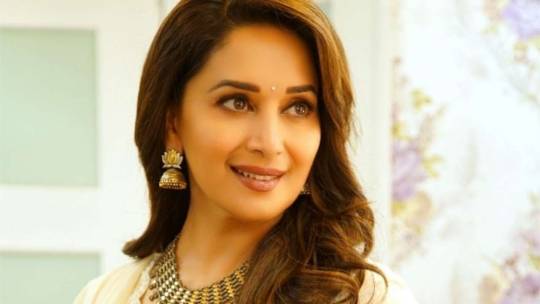
Journey of his musical profession:
• Learning Music- The multi-gifted Sukhwinder kick began his profession at a totally smooth age of eight years by signing a melodious range from the film 'Abhinetri' sang via the legendry singer, Lata Mangeskar throughout a level performance. His profound love for music grew with every passing day, and learnt tune under the steerage of the famous Bollywood music composer duo, Laxmikant Shantaram Kudalkar and Pyarelal Ramprasad Sharma (popularly called Laxmikant-Pyarelal). He also released his first Punjabi song album, titled: 'Munda Southhall Da' marketed through T-Series, prior to becoming a member of the troupe of the musicians.
This tune album turned into a turning factor to his tune profession because it helped him to obtain an award, and decided to pursue music as his profession.
• Struggle in the direction of achieving success- Before getting a making a song spoil in the Hindi film, 'Karma', this Punjabi born singer struggled tough to acquire a role inside the tinsel-city. He labored as a Music arranger for Laxmikant-Pyarelal group. Although his overall performance in 'Karma' remained unnoticed by way of the listeners, however very soon he got any other possibility to prove his expertise by using singing in Madhuri Dixit starrer, 'Khilaaf'. Even although, the music, "Aaja Sanam" was successful, yet the singer remained unheard. Once once more he did now not lose hope, and went overseas to advantage a deeper information approximately extraordinary genres of music. In the meanwhile, he also acted in a Tamil film known as, 'Ralshakudu'.

• Skyrocketing Achievements- After a enormous hiatus from the sector of Indian music, Sukhwinder back with a massive bang after the success of the long-lasting variety "Chal Chhaiyya Chhaiyya" from the Mani Ratnam directed movie- 'Dil Se' in 1998. It became his self confidence and religion that stored him going even during the ordinary days of his singing profession, and were given him the celebrated Filmfare Award for excellent playback male singer inside the year 1999.Since then, the ace singer witnessed an upswing in his career and managed to seize the exceptional playback male singer Filmfare Award yet again within the 12 months 2009, for the Shah Rukh Khan starrer song, "Haule Haule" from the movie 'Rab Ne Bana Di Jodi'. Other chartbuster songs that Sukhi has in his credit score consists of, "Huh Hud Dabang" (Dabang), title song of 'Matru Ki Bijlee Ka Mandola', "Lootnewale" ( Matru Ki Bijlee Ka Mandola), "Anarkali Disco Chali" (Housefull 2), "Banjara Banjara" (Ek Tha Tiger), "Tere Bin Sukha Sukha Saawan"(Kahani), title music of 'Chak De India' and lots of extra.
0 notes
Photo
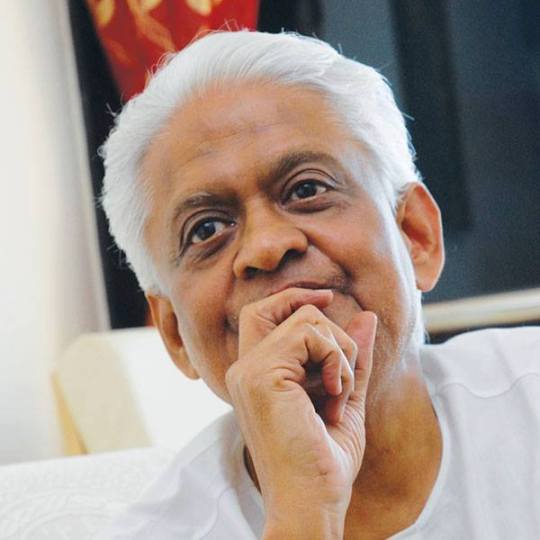
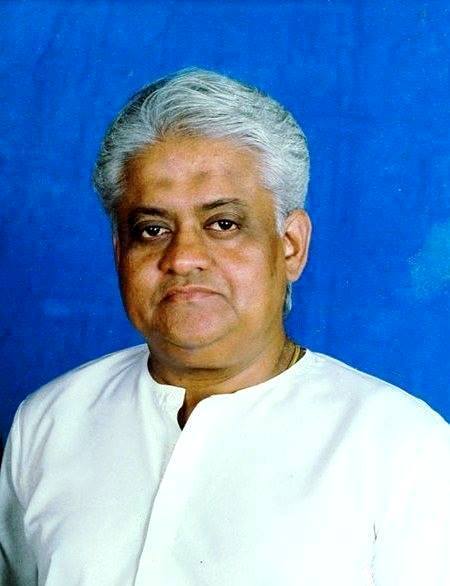
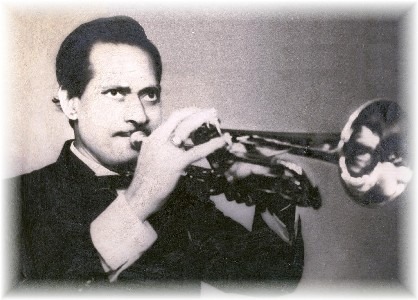
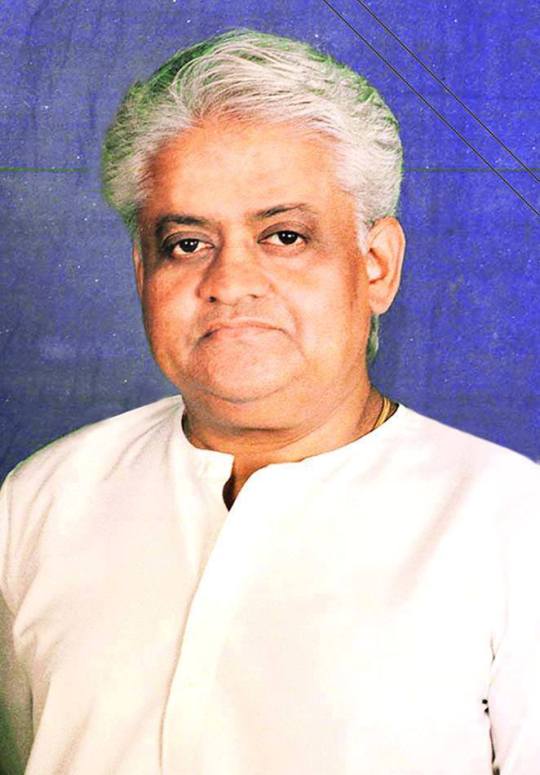
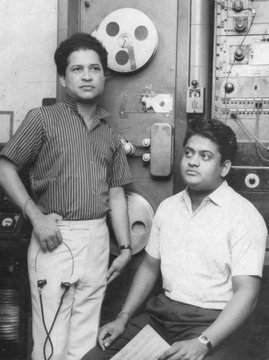
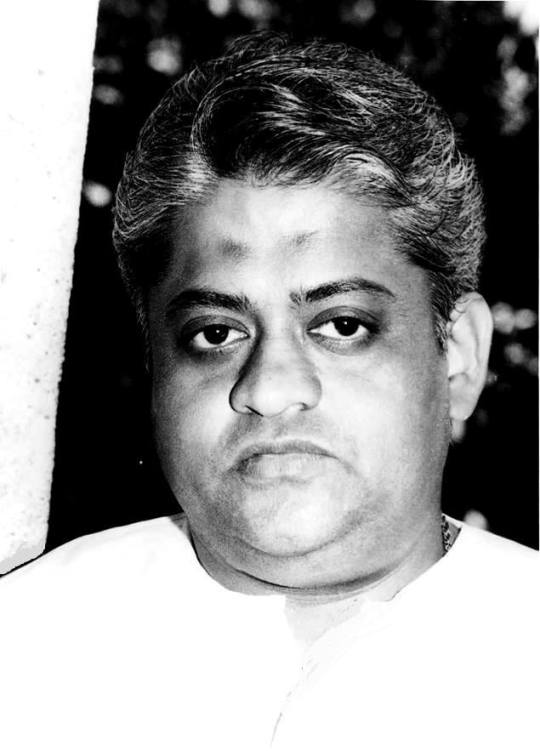
Birthday Greetings to Hindi film industry's living music legend Sri. Pyarelal Ramprasad Sharma. (03/09)
The legendary music director duo of #LaxmikantPyarelal is a synonym to Hindi film music, more so to it’s popular and hit music.
What are your favourite songs from the duo?
6 notes
·
View notes
Text
The composer who immortalised his violin teacher Anthony Gonsalves
(adsbygoogle = window.adsbygoogle || []).push(); New Delhi, Jan 26 : Music composer Pyarelal Ramprasad Sharma, of Laxmikant-Pyarelal fame, has been honoured with the prestigious Padma Bhushan, not only as a celebration of his musical prowess, but also in acknowledgment of his role in defining the golden era of Hindi film music. The octogenarian learnt the basics of music from his father, the…
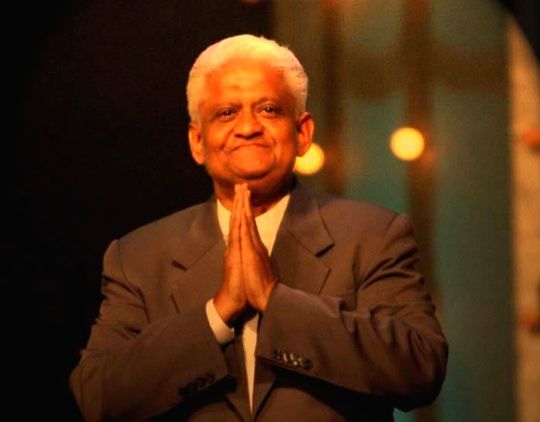
View On WordPress
0 notes
Photo
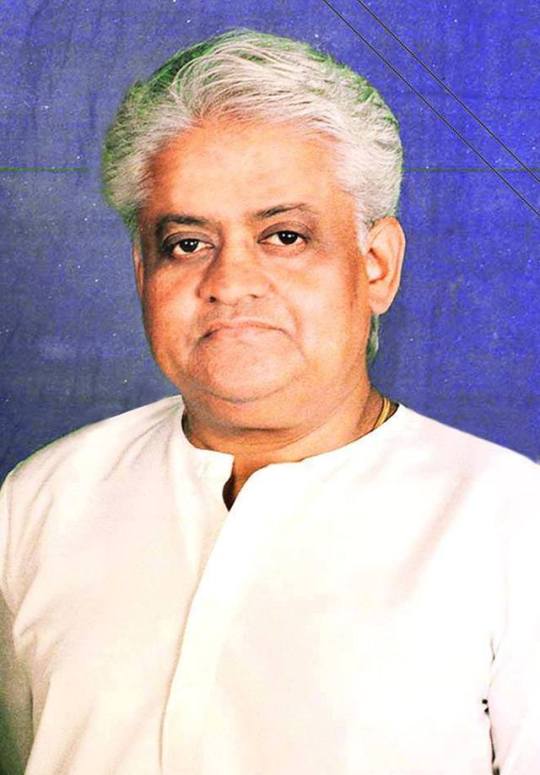
Wishing great musician Pyarelal Ramprasad Sharma on his 77th birth anniversary.
Pyarelal Ramprasad Sharma (born 3 September 1940) was the son of a renowned trumpeter Pandit Ramprasad Sharma (popularly known as Babaji), who taught him the basics of music. He started learning violin at the age of 8.
He learnt to play violin from a Goan musician named Anthony Gonsalves. The song "My Name Is Anthony Gonsalves" from the movie Amar Akbar Anthony is regarded as a tribute to Mr. Gonsalves (the movie had music by Laxmikant–Pyarelallal). By the age of 12, his family's financial condition had deteriorated, which in turn forced him to earn money by playing in studios. Pyarelal then used to frequent and play the violin in studios such as Ranjit Studios, to earn money for his family.
Laxmikant and Pyarelal met at Sureel Kala Kendra, a music academy for children, run by the Mangeshkar family. After she came to know about their financially poor backgrounds, Lata recommended their names to music directors like Naushad, Sachin Dev Burman and C. Ramchandra. Similar financial backgrounds and age made Laxmikant and Pyarelal very good friends.
They used to spend long hours at the recording studios, sometimes getting work for each other and even playing together whenever they got the opportunity.
Like बॉलीवुड डायरेक्ट Bollywoodirect
1 note
·
View note
Text

Birthday Greetings to the Hindi film industry's living music legend Sri. Pyarelal Ramprasad Sharma. (03/09)
The legendary music director duo of Laxmikant Pyarelal is a synonym to Hindi film music, more so to its popular and hit music.
What are your favorite songs of the duo?
4 notes
·
View notes
Photo
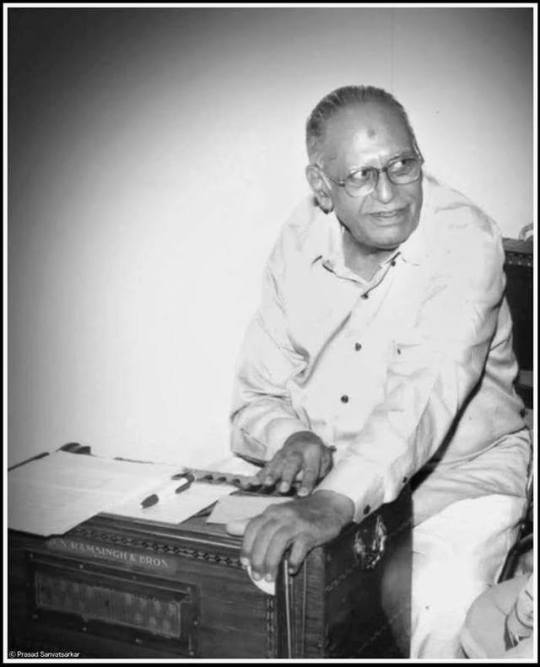
Tributes to Shamrao Kamble, the unsung music maestro of Hindi cine music industry, on his birth anniversary today.
Shamrao Kamble was an eminent and excellent music arranger who had worked with almost all the music directors in 60s and 70s. Basically a Harmonium player, he was also a master in organ and vibraphone playing. He was a favourite arranger of music directors Laxmikant -Pyarelal, Roshan, Rajesh Roshan, Jaidev and Sudhir Phadke. He was the melody section conductor in Laxmikant-Pyarelal's music and worked with them throughout their career. His music arrangements in films like 'Mujhe Jeene Do', 'Prem Parbat', 'Gharonda', 'Reshma aur Shera' (with Jaidev), 'Anokhi Raat' (Roshan), '’Kunwara Baap’, ‘Julie' (Rajesh Roshan) and the hit Marathi album 'Ritu Hirwa' was amazing.
He had also composed music with the veteran violinist Prabhakar Jog for the English film 'Birbal My Brother' under the name 'Shyam-Prabhakar'. We have listened to his unbeatable harmonium in the songs like 'baai mi wikat ghetala sham", 'thakale re nandalala"(‘jagachya pathivar’), "jaane kahan gayi" (‘dil apna aur preet paraai’) and organ in "yashomati maiya se bole nandalala" (‘satyam shivam sundaram’. . Very few know that Shamrao himself was a brilliant composer as well. He used to compose Bhajans and once on listening to the Bhajans he composed, music director Pyarelal asked him “Shamraoji if you can compose the tunes so nicely, why don’t you think to be a full-fledged music director for films ?” He just said “I am more interested in the Music Arrangements..” Pyarelal asked him jokingly, “so shall I use your compositions ?” smiling, within a second he said, “Pyareji, my all work is for you… you may use whenever you wish..!” I am very much sure that if Shamraoji had taken music-direction is a career, he would have definitely achieved the position in the list of most talented and successful composers in Indian music field," said Pyarelal Ramprasad Sharma, the ace music director.
"His knowledge and devotion towards music was so deep, that he even used to guide or suggest the top artists like Rais Khan (sitar), Hariprasad Chaurasia (flute), Shivkumar Sharma (santoor) about the playing during the recordings. He also used to express that a particular music piece would be more effective if improvised in a different manner etc. And the greatness of those artists also, who used sportingly accept Shamraoji's suggestions and appreciate the same.. This was only because they were fully aware of Shamraoji’s knowledge and capacity. And also this was the reason that we had given total freedom to him in our work also," said Pyarelal.
In his early career, Shamrao had worked as a notation-writer. He was the one who wrote down the notation for Dinanath Mangeshkar's natya sangeet (Chandrika hi janu, Vilopale madhu meelanat ya, Yuwati mana etc).
He was well-versed in western idiom too. He brought sophistication to the music pieces of Sudhir Phadke, Roshan and Jaidev. His speciality was reading the lyrics and composing music interludes to set the mood for the next stanza. His interludes for 3 stanzas used to be all different (e,g. Jo waada kiya nibhana padega). He completed Roshan's 'Anokhi Raat' in his absence when Roshan died halfway through the movie.
He assisted Rajesh Roshan in his first two movies 'Kunwara Baap' and 'Julie', and young 'Shridhar Phadke' for his 'Rutu Hirwaa' album and continued even later.
A producer once came to Jaidev asking him to score for Gharonda, but asked him to give music like R.D.Burman. Jaidev refused, but Shamrao said "You just say yes, we will see what to do". He is the one who transformed Jaidev's difficult tunes into modern rhythm and orchestration, using strings, transichord and whistle effectively. After the movie was released, Jaidev rang him up "Arre ye tune kya kar diya? My music is so successful, now everyone wants music like that. I have to attach your name to mine, too".
Shamrao was the senior partner in Shyam Kamble & Party (along with Laxmikant and Pyarelal who were kids) performing at the Ganeshotsav programmes.
Shamrao Kamble was one such soul who has contributed endlessly to the music industry. For many he was a guide and father figure in the music industry. And more than all this he was a great great human being. So modest and down to earth for all his amazing achievements..
Shamrao Kamble passed away on away on 17th October 2008 at Dombivli due to a Brain Stroke. He was 83.
Although the void created by him can never be filled, his art and work will remain in everyone’s memory eternally.
May the noble soul of Shamrao Kamble rest in eternal peace.
Courtesy- Imprints and Images of Indian Film Music, Shri. Prasad Sanwatsarkar and Sri. Chandu Kale
3 notes
·
View notes
Text
Kate Nahi Katte Din Ye Raat Song Ringtone Download
Kate Nahi Katte Din Ye Raat Song Ringtone Download
Kate Nahin Kat Te Song in Hindi. काटे नहीं कट ते song from Mr India 1987. It stars Anil Kapoor, Sridevi, Amrish Puri. Singer of Kate Nahin Kat Te is Alisha Chinai, Kishore Kumar. song lyrics are written by Javed Akhtar Music is given by Laxmikant Shantaram Kudalkar (Laxmikant Pyarelal), Pyarelal Ramprasad Sharma (Laxmikant Pyarelal) Kate Nahi Katte Din Ye Raat Song Credits – Mr.India Movie…
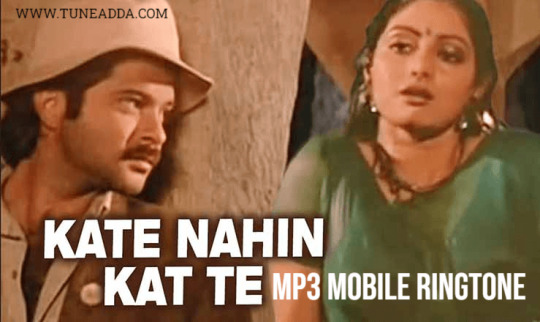
View On WordPress
0 notes